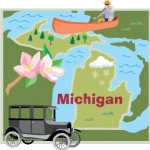(Kansas City, Kan., Nov. 23, 2011) – Eldo W.R.M.S., Inc., a commercial goods salvage wholesale and retail business, has agreed to pay a $23,900 civil penalty to the United States to settle a series of hazardous waste violations at its facility in Grandview, MO (more). Read the whole news release and you’ll learn that the most significant violation had to do with the incorrect on-site management and off-site disposal of pharmaceuticals. You may be surprised to learn that pharmaceuticals are not identified specifically in the RCRA regulations (40 CFR 239 to 299), nor is there any exclusion from the regulations allowed. Rather, they are subject to the hazardous waste determination requirements of 40 CFR 262.11 the same as any other discarded material and may have to be managed as a hazardous waste. It may also surprise you to learn that there are no US EPA regulations specifically regarding the management or off-site shipment of medical waste. In the absence of Federal regulation of medical waste, many states have created their own, but they don’t include pharmaceuticals (see here for more information). If you generate pharmaceuticals as a waste, you should be aware of the applicable regulations, your disposal options, and some potential regulatory relief coming down the pike.
This US EPA website has a lot of helpful information about pharmaceuticals: what they are, their dangers, and proper disposal methods; as part of a larger group of potential pollutants known as Pharmaceuticals and Personal Care Products (PPCP’s). PPCP’s include:
- Prescription and over-the counter therapeutic drugs
- Veterinary drugs
- Fragrances
- Cosmetics
- Sun-screen products
- Diagnostic agents
- Nutraceuticals (e.g., vitamins)
Sources of PPCP’s include:
- Human activity
- Residues from pharmaceutical manufacturing (well defined and controlled)
- Residues from hospitals
- Illicit drugs
- Veterinary drug use, especially antibiotics and steroids
- Agribusiness
The dangers to the environment from PPCP’s lies in their ability to infiltrate water systems relied upon for drinking water or wildlife, thus the importance of compliance with the regulations. Without any current regulations addressing PPCP’s specifically, you must manage it as any other discarded material:
- Determine if it is subject to any of the regulatory exemptions for solid waste or hazardous waste.
- Determine if it is subject to the recycling exemption.
- Determine if it is either a listed or characteristic hazardous waste.
- If it is a hazardous waste, count it towards your generator status threshold.
- Comply with the applicable regulatory requirements of your generator status.
- Ensure your off-site transportation and disposal is with a licensed hazardous waste hauler and medical waste disposal facility.
I mentioned the possibility of regulatory relief, didn’t I? There is a proposal to include pharmaceuticals with the current universal wastes. This could be a great relief to generators of this waste as the universal waste regulations allow for longer on-site accumulation, less stringent container requirements, and little to no inspection and training; learn more about universal waste here.
Pharmaceuticals and PPCP’s are just one of many types of waste that require your attention. If you generate any hazardous waste or ship or receive any hazardous material, you will benefit from my training events where I meet and exceed both the US EPA hazardous waste and the US DOT HazMat Employee training requirements in one day. Review my schedule to find a date and location convenient to you or contact me to schedule on-site training.

